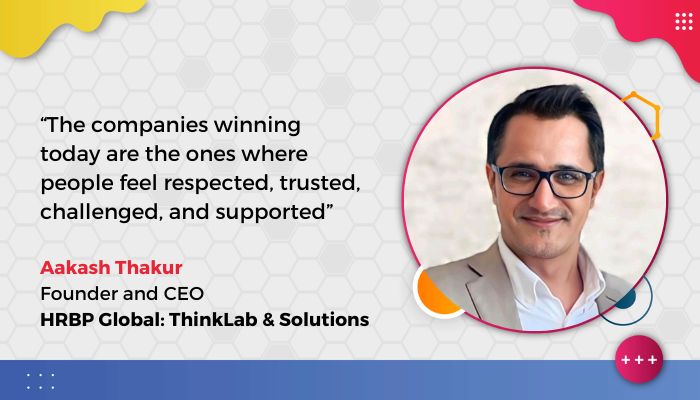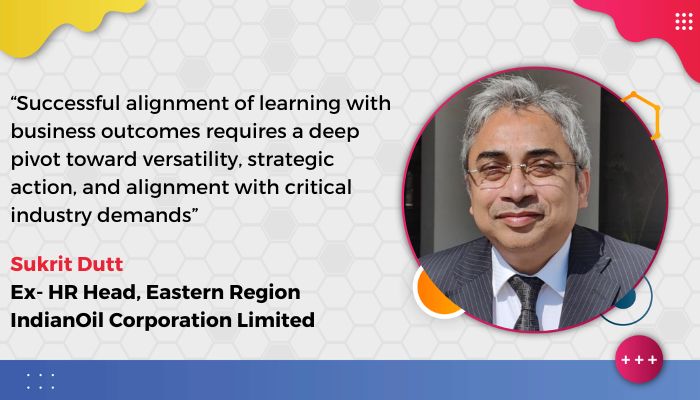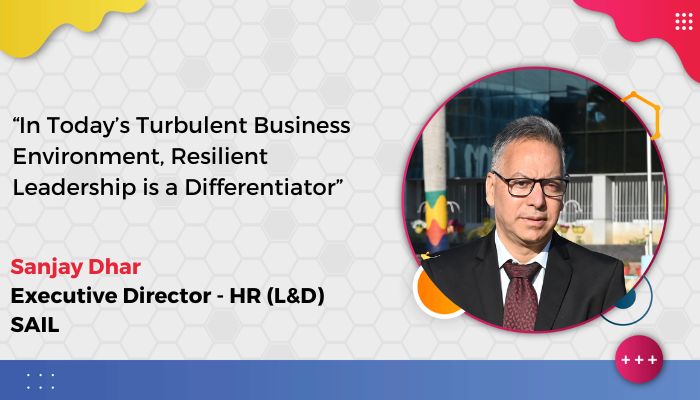Leveraging India’s demographic dividend to ride the growing tide of Entrepreneurship
Joseph Schumpeter developed the theory of creative destruction as an integral part of the Cycle of Innovation and Entrepreneurship. The 250-year industrial revolution has been a series of waves where the energy of one wave is absorbed and transferred to give strength and momentum to the next. The first wave of the industrial revolution began with water, paper, textiles, and iron and lasted for 60 years (1785-1845). This paved the way for the second wave of steam, railways, and steel which rose on the remains of the first. The complete absorption of the first wave in the rise of the next is what is described as creative destruction. The second wave lasted for 55 years (1845-1900) while the remaining 3rd, 4th, and 5th waves were relatively short-lived at 50, 40, and 30 years respectively. The pace of change is much faster and we are now in the midst of the next cycle of innovation or creative destruction in the adoption of AI/ML, IoT, and the Metaverse.
Inventions and innovations which defined the 5th wave with the creation of digital Networks, software, and new media will start becoming less important and we will witness the rise of the 6th wave of Entrepreneurship. One of the notable things about the aforementioned waves of innovation is that they produced enormous wealth and social progress while rendering older systems obsolete. We are witnessing a similar trend with economies running on older industrial models becoming increasingly expensive. Companies that want to survive would have to tap into immense foresight and engage in the process of innovation and creative destruction within their companies and rethink everything about their businesses. Failing to do so renders them irrelevant and unsustainable as one cannot hold on to the past while seeking to move forward. Failure to change with the times is unrealistic and at par with seeking to resurrect dinosaurs in the age of nanobots.
The problem has two parts, one is that of existing companies looking to grow in the future and the second is new companies who seek to ride the new wave. The solution to both of these is fostering entrepreneurship in the country, for new companies there need to be young people willing to take the plunge by starting a disruptive company. Existing companies need to foster entrepreneurship to impel them into the future and avoid becoming irrelevant. This wave no doubt has been accelerated by the continuous waves of COVID-19 forcing the increased adoption of digital technologies.
Leading the human capital of organizations has become a key challenge for companies as there is a sudden shift in values that demands more attention to the needs of employees to foster entrepreneurship. The emerging new wave of disruption calls for intelligent use of resources hence, we propose the following strategic interventions:
Vision building: Businesses need to build a vision to grow that is beyond the immediate need to make a profit. This vision must encompass a broader view that aligns the business with society to create a learning environment tearing down the usual silos that have led to the rise of trends such as the great resignation. There is a great opportunity for employers to channel the creativity and skills of their staff and convert it into an entrepreneurial mindset. – The act of transforming employees into entrepreneurs requires a cultural shift in organizations where there is a greater focus on encouraging innovation, providing autonomy, and investing trust in the employees. A recalibration of the traditional employer-employee relationship will enable the workforce to feel comfortable in contributing to new business growth and embrace experimentation. Businesses that embrace the process of creative destruction today, either willingly or due to market forces, have a higher chance to transform and remain competitive in an increasingly complex and uncertain future.
Invest in skills: Skill development is essential as we step into the next wave as research by the McKinsey Global Institute indicates that 800 million jobs could be lost by automation by 2030. Though the report goes on to emphasize that this will also lead to the creation of new jobs, we, as people and organizations, need to inculcate the skills required for these new jobs. Skilling, upskilling, and re-skilling must become an integral part of the business plan. Organizations must be cognizant of the need to prepare for the future by creating an advanced skill development strategy that caters to the needs of each function and business vertical. Sustainable, long-term skill development programs can empower individuals to grow and contribute to the success of the company by enhancing their skill sets to cater to the changing needs of the business.
Initiate a dialogue: As modern organizations continue to become more dynamic and versatile, it is essential for business leaders to open the doors for communication. Business leaders must reconnect with the workforce to understand and leverage their existing skill sets and encourage the growth and development of new skills. The recent workplace trends of moonlighting and quiet quitting indicate a significant disconnect between the employee and the organization. The modern organizational structure which professes to have shed the hierarchical paradigm needs to become even more democratic and inclusive. This will facilitate a dialogue where an employee can freely discuss changes in interest and explore alternative ways to contribute without coming away with a sense of having rocked the boat. By the same token leadership too can encourage employees to acquire new skills or invest in augmenting their existing set of capabilities.
It will require a multipronged approach on the part of business leaders to drive change and lead the world into the new wave of innovation and entrepreneurship. As a nation, we need must nurture the requisite skills in terms of policy, education, employment models, reskilling, and upskilling. The potential growth in the future can be unlocked through careful planning to support the development of entrepreneurship and new-age skills. If the country manages to harness the huge untapped potential of our youth then very few things can stop India from emerging as a superpower in the next wave of innovation. The main cross-section that needs to be taken care of is the one of employability and education to leverage this new wave. In the words of Sri Ratan Tata, “If there are challenges thrown across, then some interesting, innovative solutions are found. Without challenges, the tendency is to go on the same way”. The time is thus ripe for India to ride the 6th wave of entrepreneurship by leveraging our demographic dividend.
Author: Kartik Narayan , CEO – Staffing, TeamLease Services Ltd
About the Author:
Kartik Narayan is currently the CEO (Staffing) of TeamLease Services Ltd. He was previously working with Vodafone Idea where his role as EVP & National Head – Strategic Accounts required him to evolve strategy, drive sales and provide commercial leadership in a pan India P&L role. In his work at Vodafone Idea, Kartik supported national, regional and global organisations, successfully building and leading highly effective teams to drive growth and market share performance.
Kartik’s prior assignments include working with the services & consulting division in Cisco India; as Regional Director for Riverbed Technologies setting up greenfield operations in South India, Sri Lanka & Bangladesh and over a decade with Airtel where he did multiple general management roles including pioneering the U.S operations for Bharti Airtel USA Ltd.
Kartik has a Bachelor’s & Master’s degree in commerce from Pune University and an MBA from Symbiosis Institute of Digital & Telecom Management. His personal interests include reading, teaching, playing golf and movies.
You might also be interested to read: The Entry of Green Jobs in the World Of Work






